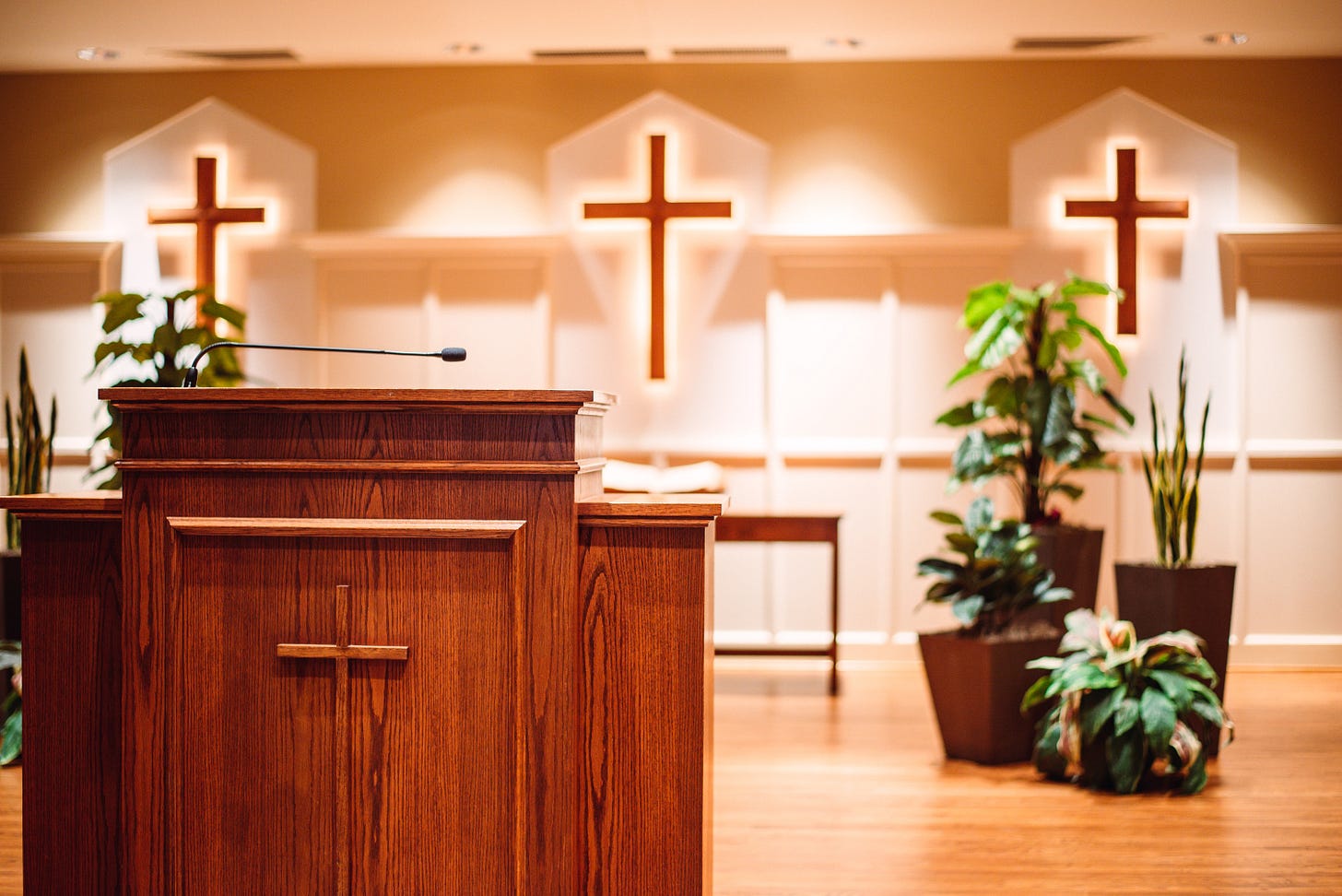Is Full-Time Vocational Ministry the Highest Calling?
Originally published on The High Calling / Theology of Work Project.
“The center of God’s purpose is the Church,” Bill Hybels said.
I was attending Willow Creek’s Leadership Summit as a seminary student, and I was so excited about my future career as a pastor. Hybels presented Matthew 16, when Peter confesses that Jesus is the Christ and the Lord proclaims, “Upon this rock I will build my church, and the gates of hell shall not prevail against it!” Over the huge projection screens, Hybels beamed as he looked out at the crowd gathered that day in South Barrington and confidently stated, "The center of God's purpose is the Church."
Oh, how I was inspired! I chose the right vocation, that of full-time pastoral ministry, because God’s Church is what it’s all about. As I sat in that massive auditorium (the epitome of what I believed to be successful church ministry), I thought about how important the institutional church is to God's mission—with our attractive worship services, classroom Bible studies, and varying programs to meet the needs of many different people. I was grateful to be able to lead such an endeavor.
At that time, I was studying at Trinity Evangelical Divinity School. We learned Hebrew and Greek, Old and New Testament, Biblical and Systematic Theology, Philosophy and Apologetics, Preaching, and Practical Ministry. I believed wholeheartedly that pastors and teachers are called to equip God's people for works of service (Ephesians 4:11-13). But I understood "works of service" as primarily as their service for the church.
The highest calling for someone, so I thought, was full-time vocational ministry. Therefore, the laity's "works of service" would primarily assist me in leading a local church. Why? Because I believed that the church is the main thing.
The Main Thing: The Kingdom of God
But as I’ve discovered over the years, the institutional church is not the main thing. The main thing is the Kingdom of God. I now believe that the Church functions for the sake of the Kingdom of God, not the other way around.
What if the main thing is not me (as the pastoral leader), or about our church (our building, our worship service, our programs, our attendance numbers), or about recruiting people to "the high call of overseas missions" (since this is sometimes seen as the pinnacle of God’s work)?
What if all these things are good things, but are meant to serve a greater thing—that is—the Kingdom of God?
What if God wants to raise up men and women, in all walks of life, to yield their entire lives to the Lordship of Jesus and the purposes of His Kingdom? What if these men and women were to see all aspects of their lives as ways to contribute to bringing God’s Kingdom on earth as it is in Heaven?
Everyone Has a Calling, Not Just the Pastors and Missionaries
What if the pinnacle of doing Kingdom work is being faithful in the callings that ordinary humans are meant to have: to be artists, engineers, nurses, educators, designers, homemakers, dads, moms, politicians, lawyers, carpenters, machinists, musicians, software writers, etc.?
In my role in college campus ministry, I meet a lot of young people who want to be youth pastors or campus ministers. Why? Because the people who have had the greatest impact in their lives were youth pastors and campus ministers! They naturally want to follow in these people’s footsteps. They believe, like I did, that full-time vocational ministry is the most important, most God-honoring course to take in life.
Sometimes Christians learn this directly from pastors and ministers, but more likely we learn it just by observing pastors and ministers talk about the importance of church all the time.
Are you in full-time vocational ministry? I am. It is good to find satisfaction and joy when someone says he or she wants to become a missionary or go to seminary.
But it is high time we get off our high horse and honor the callings of the people in our congregations. We should find the same satisfaction and joy when we see people fully engaged in following Christ in the life they are called to live—doing the work God has equipped them to do in their workplaces, neighborhoods, communities, families, as well as their churches.
_________________
Photo by Mitchell Leach on Unsplash
Originally published for The High Calling / Theology of Work Project




